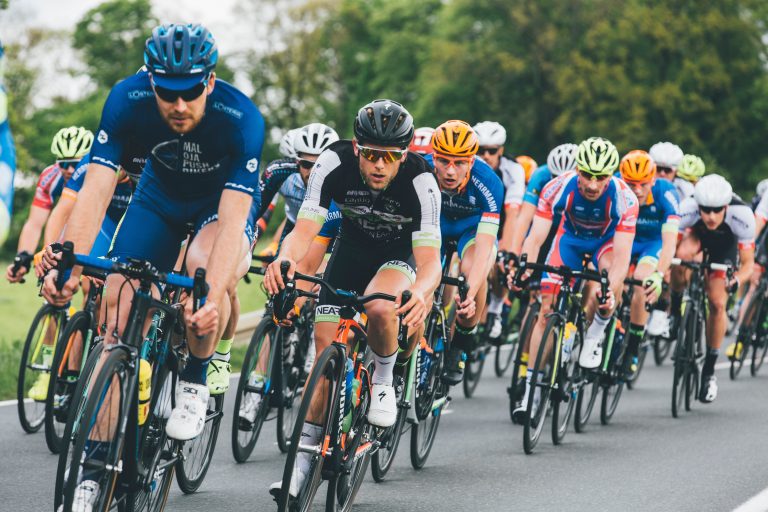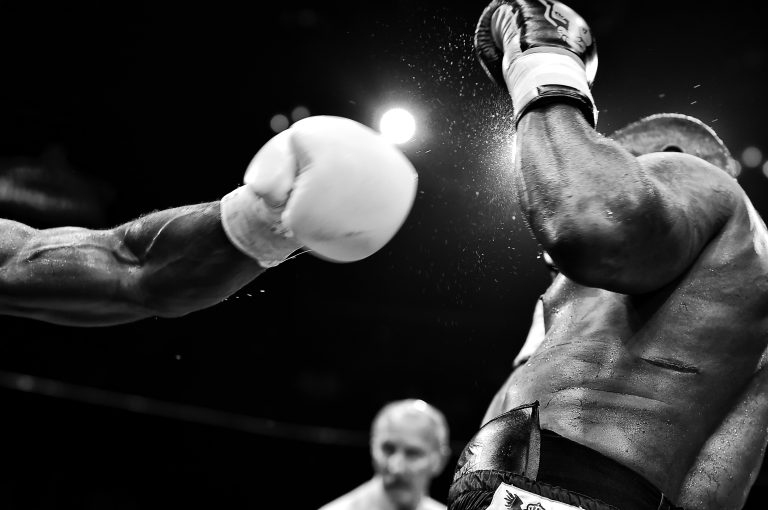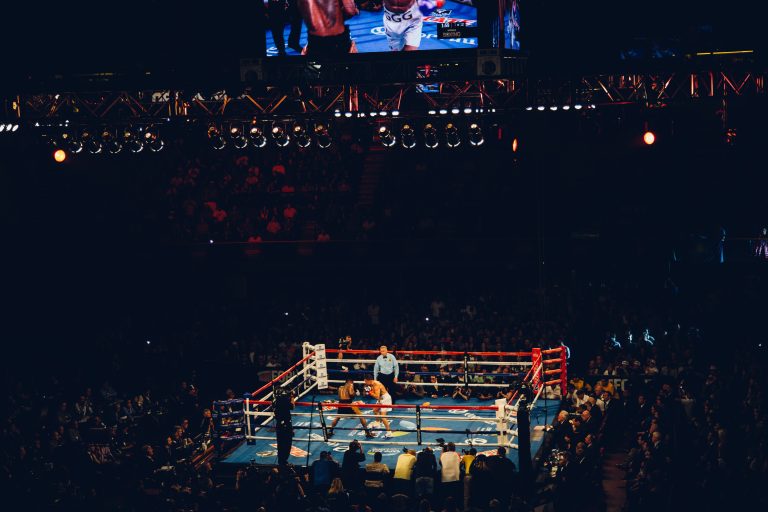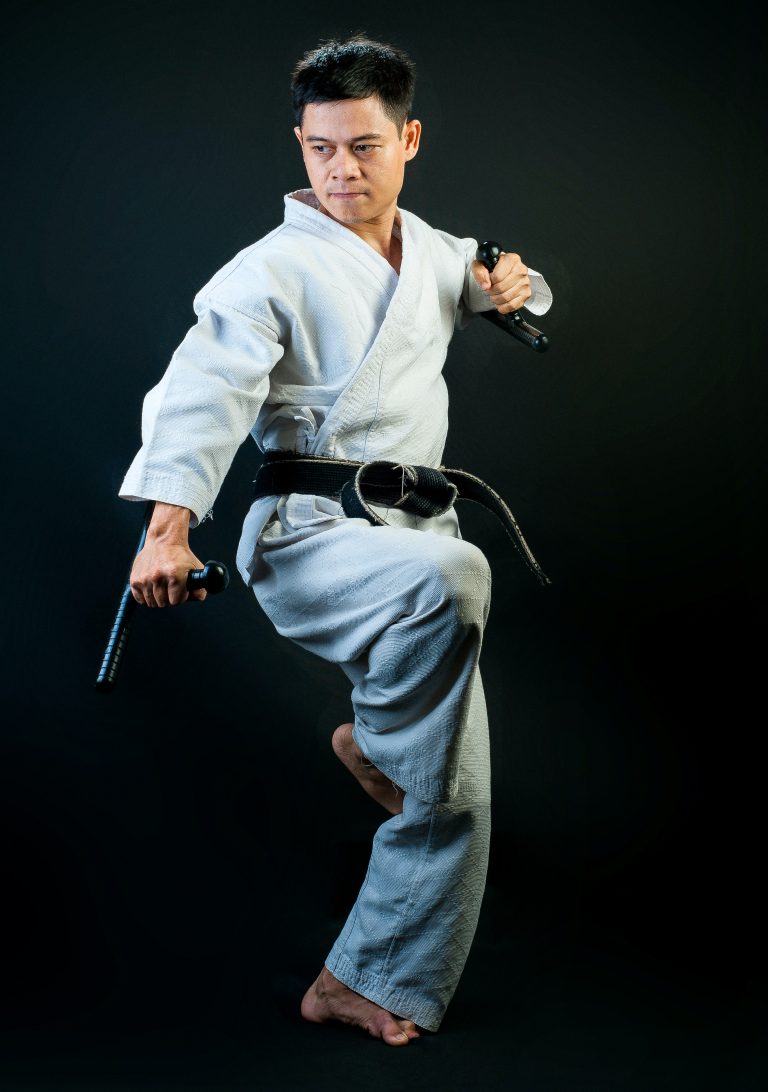Karate Master Meaning in English
Karate is a popular martial art that has been around for centuries. It originated in Okinawa, Japan, and has since spread across the world. Karate is not just a physical activity, but it is considered a way of life. Karate training helps to develop physical strength, mental toughness, and discipline. Many people who practice karate aim to become a karate master. But, what does the term „karate master“ mean? In this blog post, we will explore the meaning of the term „karate master“ in English.
What is Karate?
Before we dive into the meaning of the term „karate master,“ let’s first define what karate is. Karate is a martial art that focuses on striking techniques, such as punching, kicking, knee strikes, and elbow strikes. It also includes open-handed techniques, like chops, slaps, and strikes with the edge of the hand. The goal of karate is to disable or knockout the opponent.
Karate is not only a physical exercise, but it also includes a mental aspect that teaches self-discipline, respect, and humility. Karate training is rigorous and requires perseverance and dedication.
What is a Karate Master?
A karate master is someone who has achieved the highest level of mastery in the art of karate. In Japanese, a karate master is called „shihan“ (師範). The term „shihan“ translates to „model teacher.“
A karate master has spent many years dedicated to karate training and has acquired a deep understanding of the art. A karate master has also demonstrated exceptional skills in karate techniques, both in practice and in actual combat.
In addition to technical skills, a karate master must also have a profound understanding of the philosophy and principles of karate. This includes an understanding of the principles of yin and yang, which represent the balance of physical and mental aspects of martial arts.
How to Become a Karate Master?
Becoming a karate master is not an easy task. It requires years of dedicated training, practice, and studying. To become a karate master, you must first start as a beginner and work your way up the ranks.
There are different levels in the karate ranking system, and each level indicates a different degree of skill and knowledge. The traditional karate ranking system consists of ten levels or „kyu“ before reaching the first level of black belt or „dan.“
After reaching the first level of black belt or „shodan,“ a student must continue to practice and study to achieve higher black belt ranks or „dan.“
It is only after reaching the highest rank of „hanshi“ that someone can be considered a karate master. To achieve the rank of „hanshi,“ a student must have demonstrated exceptional skills and knowledge in karate and have had a significant impact on the development of karate as a martial art.
Frequently Asked Questions about Karate Master Meaning in English
Karate is a martial art that originated in Japan and has since become popular worldwide. The term „karate“ can be translated to „empty hand“ in English. Karate has gained a lot of popularity in recent years not only as a sport but also as a form of self-defense. As a result, many people have become curious about the meaning of Karate Master in English. In this post, we’ll answer some of the most frequently asked questions about the Karate Master.
1. What is the meaning of Karate Master?
A Karate Master is a person who has achieved the highest level of proficiency in the art of Karate. The title of Karate Master is typically awarded to an individual who has spent many years training in the martial art and has demonstrated a deep understanding and mastery of the techniques.
2. How long does it take to become a Karate Master?
It takes many years of dedicated training and practice to become a Karate Master. Most Karate practitioners will spend several years mastering the basic techniques before moving on to more advanced forms and techniques. On average, it can take anywhere from 10 to 20 years to achieve the level of proficiency required to become a Karate Master.
3. What are the responsibilities of a Karate Master?
The responsibilities of a Karate Master vary depending on their specific role and the school or organization they are associated with. In general, a Karate Master is responsible for teaching and guiding students in the art of Karate. They may also be responsible for overseeing tournaments, competitions, and other events, as well as promoting and advancing the art of Karate.
4. How do you address a Karate Master?
When addressing a Karate Master, it is customary to use the honorific „Sensei“. This title is used as a sign of respect and acknowledgement of the Karate Master’s knowledge and expertise in the martial art.
5. What is the difference between a Karate Master and a Karate Instructor?
While the terms Karate Master and Karate Instructor are often used interchangeably, there are some differences between the two. A Karate Instructor is typically someone who has achieved a lower level of proficiency in the martial art and is responsible for teaching students at a beginner or intermediate level. In contrast, a Karate Master has achieved the highest level of proficiency in the art and is responsible for guiding and teaching more advanced students.
6. How important is the role of a Karate Master in the practice of Karate?
The role of a Karate Master is crucial in the practice of Karate. A Karate Master is responsible for promoting and advancing the art of Karate, ensuring that the techniques and philosophies are taught accurately and effectively to future generations of practitioners. They also play a vital role in inspiring and motivating students to continue their Karate training and pursue excellence in the martial art.
7. How can I find a Karate Master near me?
To find a Karate Master near you, you can start by doing an online search for Karate schools or organizations in your area. You can also ask friends or family members who practice Karate for recommendations or attend Karate tournaments or events to meet and network with other practitioners.
In conclusion, the role of the Karate Master is critical in the practice and advancement of the art of Karate. Becoming a Karate Master requires many years of hard work and dedication, and the responsibilities that come with the title are significant. If you are interested in pursuing Karate, it is essential to find a qualified Karate Master to guide and teach you on your journey.
What does „Karate Master“ Mean in English?
If you’re interested in martial arts, you may have come across the term „Karate Master“. But what does it actually mean? In this guide, we will go through the definition of „Karate Master“ and explain how one can become a Karate Master.
What is a Karate Master?
A Karate Master is someone who has achieved a high level of proficiency in the art of Karate. It takes many years of consistent training and dedication to become a Karate Master. In general, a Karate Master is someone who has earned the respect and acknowledgement of their peers and students due to their exceptional skills, knowledge, and experience.
How to Become a Karate Master?
If you’re interested in becoming a Karate Master, here are five steps that can help you on this path.
Step 1: Find a Good Teacher
The first step in becoming a Karate Master is to find a good teacher. A teacher who can guide you and help you improve your skills is essential. Look for a teacher who has a high level of proficiency in Karate and who has experience teaching others. A good teacher is someone who can challenge and push you to your limits while still being supportive and patient.
Step 2: Join a Dojo and Start Training
Once you find a good teacher, the next step is to join a Dojo and start training. A Dojo is a place where people practice martial arts. In a Dojo, you’ll have access to other students who are also training to become Karate Masters. Training in a Dojo can help you improve your skills by providing a supportive environment where you can practice and learn from others.
Step 3: Train Consistently and Improve Your Skills
Training consistently is key to becoming a Karate Master. You should aim to practice at least a few times a week, and work hard to improve your skills. This includes practicing basic techniques, learning new techniques, and working on sparring and other drills. It may take years of dedicated practice before you become a Karate Master, but consistent training is essential for progress.
Step 4: Compete in Tournaments
Participating in tournaments can help you improve your skills by competing against other skilled martial artists. You can learn from your mistakes and refine your techniques by practicing with others. Competing in tournaments can also help you gain recognition from the Karate community and earn the respect of your peers.
Step 5: Share Your Knowledge and Teach Others
After achieving a high level of proficiency in Karate, one of the hallmarks of a Karate Master is the willingness and ability to teach others. Sharing your knowledge and experience with others is an important part of the martial arts tradition. It helps keep the art alive and ensures that future generations can learn from your expertise.
In Conclusion
A Karate Master is someone who has achieved a high level of proficiency in the art of Karate. It takes many years of consistent training and dedication to become a Karate Master. To achieve this level of proficiency, one must find a good teacher, join a Dojo, train consistently, compete in tournaments, and share their knowledge and experience with others. If you’re willing to put in the time and effort, becoming a Karate Master is a worthwhile pursuit.
Inhaltsverzeichnis





